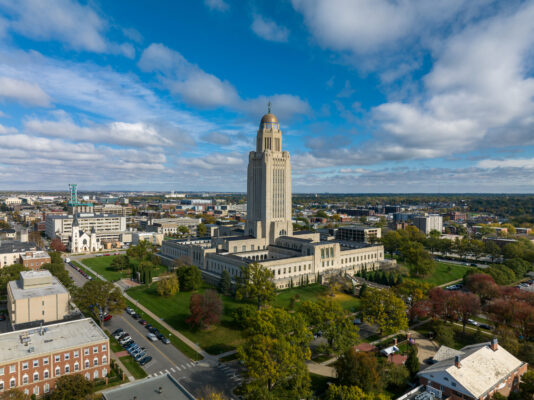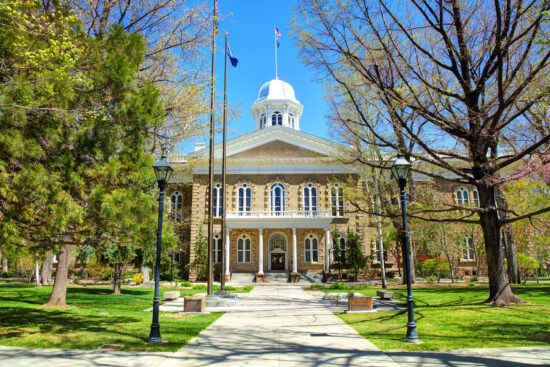The fight against abortion is a hearts-and-minds campaign.
Pro-life advocates rightly pursue legislative and judicial means to end the evil of legal abortion, but a large part of our struggle is persuasive in nature. And we need all kinds of arguments in our tool belt as we seek to persuade people both inside and outside of our faith communities that unborn life ought to be defended. We should appeal to Scripture to demonstrate the dignity of all human life, including life in the womb. We should appeal to science to show the undeniable truth that unborn human life is indeed both human and living. We should appeal to philosophy to show the capriciousness of denying human personhood to a particular class of human beings.
Jesus at conception and the dignity of the unborn
But there are also theological arguments that we can marshal in our fight against abortion. As Christians around the world celebrate the seasons of Advent and Christmas over the next several weeks, it is worth considering a specifically Christological argument that can buttress our belief in the dignity of unborn human life.
Consider that the central claim of the Christian faith is the belief that God the Son—the eternal Second Person of the Godhead—became a human being in the womb of the Virgin Mary. As the classic Christmas carol “O Come All Ye Faithful” puts it, “God of God, Light of Light; Lo, he abhors not the Virgin’s womb!” God the Son became a human being by taking to himself a complete human nature: a true body and a rational soul (see the Definition of the Council of Chalcedon, AD 451).
And the New Testament makes it clear that this assumption of a human nature began at Christ’s conception, not at his birth. This is evident from Gabriel’s annunciation to Mary concerning the miraculous nature of Christ’s conception (Luke 1:26-37). The “power of the most High” would come upon Mary and would “overshadow” her, as the Spirit once hovered over the waters of creation (Gen. 1:2) and as the presence of God hovered over Israel of old like an eagle over its young (Deut. 32:11).
Christ, then, was “conceived by the Holy Ghost” and “born of the Virgin Mary,” as the Apostles’ Creed puts it. (We could also point to the parallel account of John the Baptist’s miraculous conception and his capacity for Spirit-filled joy even in the womb of his mother Elizabeth; Luke 1:15, 44)
The problem with denying personhood at conception
To fine-tune this argument a bit, consider the Christological implications of denying the truth that the Son’s assumption of a human nature began at the moment of his conception in Mary’s womb. Consider what must be the case if the Son assumed his human nature at some point after conception—perhaps at birth or at some later point during the pregnancy of Mary.This position would entail that there was an already existing human nature, independent of its personal assumption by the Son, which was at some later point taken by the Son in personal (hypostatic) union.
So what was the status of this human nature before its assumption by the person of the Son? Did it constitute a human person on its own right? If so, then this position would entail the ancient heresy of Nestorianism, the view that there are actually two persons in Christ: the person of the eternal Son and the human person of Jesus, who was adopted by the Son at some point in his life.
If the human nature in Mary’s womb did not constitute a distinct human person, then what was it? Did it have a soul as well as a body? The nature and timing of “ensoulment” is an interesting and somewhat debated issue in the history of Christian theology, but the most compelling position maintains that the human body and soul come into existence simultaneously (see, for example, the arguments of St. Maximus the Confessor against the Platonic idea of preexistent souls). This body-soul composite is what constitutes a human person.
But what if ensoulment (and thus personhood) occurs at some point after conception? This would entail a heresy of its own when applied to Christ. If the human nature in Mary’s womb existed for a time without a human soul, then we are left with another Christological heresy: a kind of “temporary Apollinarianism,” as Oliver Crisp puts it, in which the Son’s human nature was temporarily incomplete, being comprised of a body without a soul. All of these Christological problems can be avoided, if we attend more closely to the church’s traditional understanding of the Son’s incarnation.
The historic position of the Christian church
The historic position of the Christian church is that the human nature of Christ was “without a person” (anhypostatic), in the sense that it did not constitute a human person distinct from the person of the Son. Instead, the human nature of Christ was personalized (enhypostatic) by its assumption by the person of the Son. So there was never a moment in the history of the human nature of Christ when it was not assumed by the person of the Son.
When we are confronted with Jesus of Nazareth in the gospels, there is no person there other than the eternal person of the Son of God in his incarnate state. This is precisely what makes the redeeming work of Christ efficacious for the salvation of the world. Nor was there some impersonal human nature (whatever that would mean) that was assumed at some point after it came into existence. No, the human nature of Christ was assumed by the person of the Son at the very moment of its conception.
So, at least in the case of the incarnate Christ, personhood began in the womb. If we assume that Christ’s experience was paradigmatic for human personhood, then the same would apply to all human beings: human beings in the womb are human persons. And, thanks be to God, it was for the sake of fallen human persons that the divine Son of God abhorred not the Virgin’s womb, but took to himself a human nature “for us men and for our salvation.”
This article originally published on December 21, 2015.










